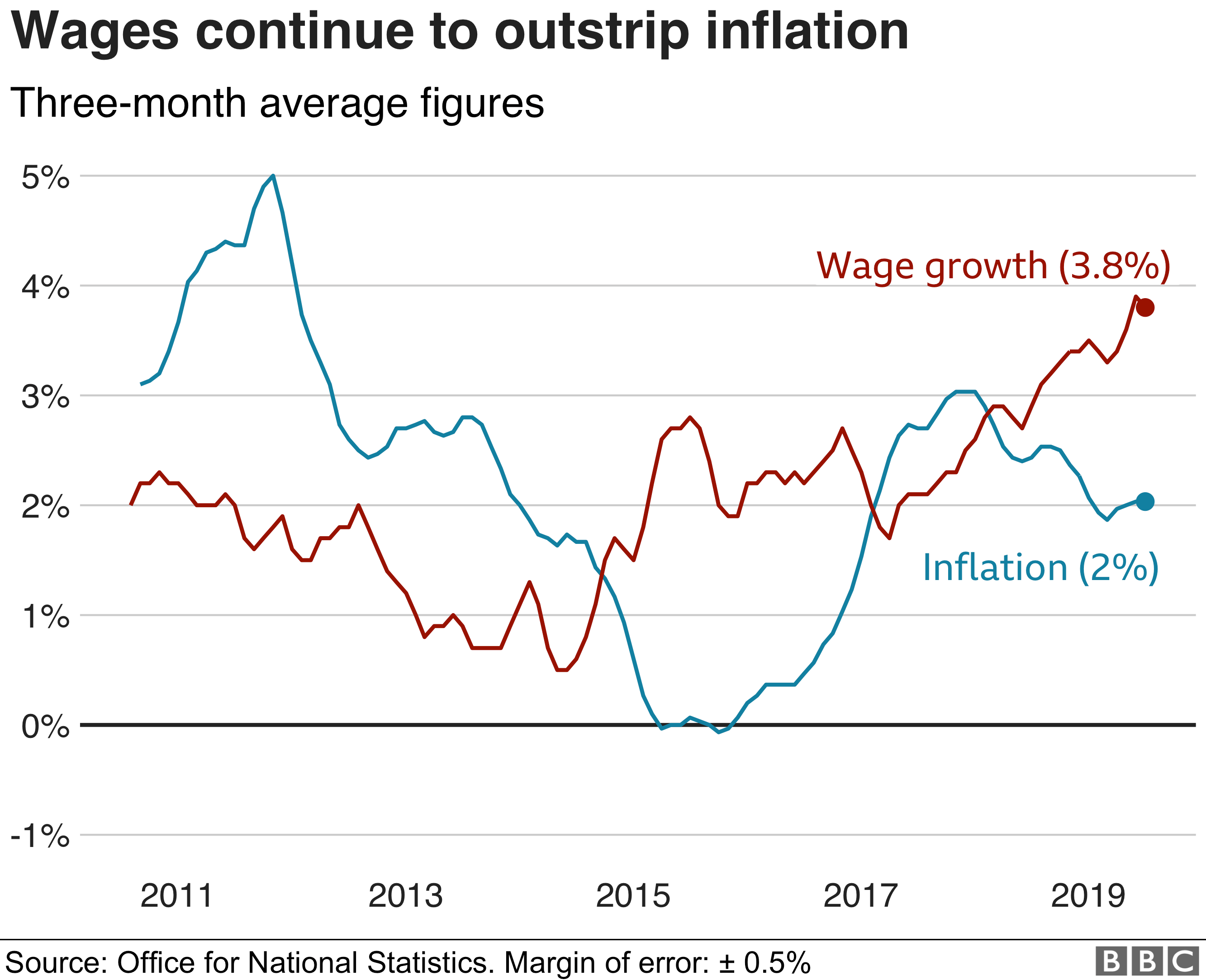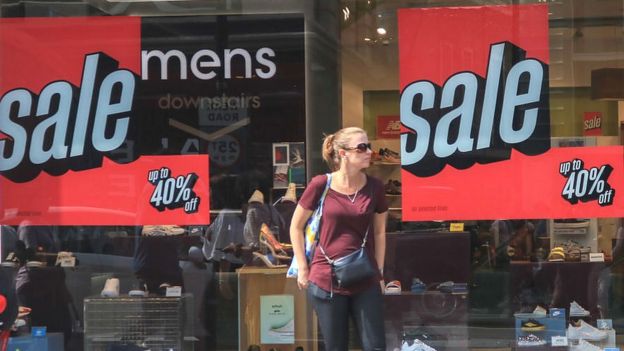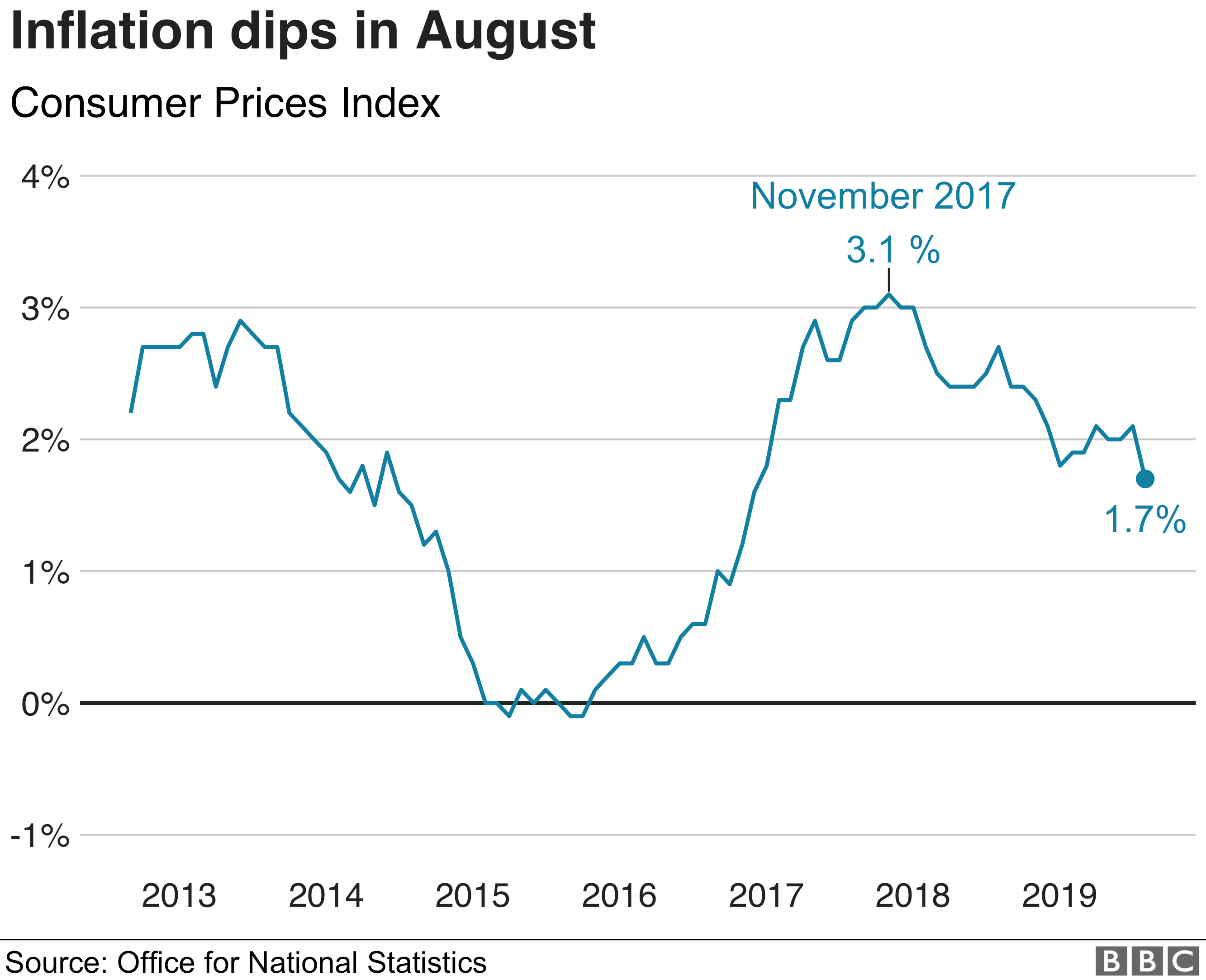
Inflation growth slowed sharply in August to 1.7% after computer game prices dropped and clothing prices were slow to recover from the summer sales.
The Consumer Prices Index measure of inflation fell below 2.1% in July, according to the Office for National Statistics.
It is the lowest rate since late 2016.
As well as the falling cost of computer games, the ONS said clothing prices rose "less than last year after the end of the summer sales".
Economists had expected inflation to dip to 1.9% in August.
The sharper fall sent the pound down 0.41% against the dollar to $1.2450.
The fall should benefit households, pushing wage growth further above the rate of inflation. Recent figures showed that pay, excluding bonuses, increased by 3.8% between May and July.

The biggest drop in CPI inflation came from the "recreation and culture" sector, where prices fell by 5% in August, in particular in computer games and downloads.
The ONS said: "Price movements for games can often be relatively large, depending on the composition of bestseller charts."
A hangover from retailers' summer sales also weighed on clothing and footwear prices.
Although prices rose by 1.8%, it was below the 3.1% increase recorded last August.

The ONS said that prices usually grew around this time of year as autumn ranges started to enter shops.
But it said the smaller rise "may have been influenced by the proportion of items on sale".
Andrew Verity, economics correspondent
While cheaper computer games contributed most to the slower rise in the cost of living, today's inflation figures also give us a hint of price pressures coming down the pipeline - or rather, the lack of them.
The prices charged by food manufacturers to retailers, for example, are down. And prices paid by manufacturers for their raw materials dropped by 0.8% in the year to August.
Much of that was down to falling oil prices. As the global economic slowdown reduced demand around the world, the standard UK measure - the price of a barrel of crude from the North Sea oilfield of Brent - dropped by 19%.
The global slowdown, in other words, has removed much of the upward pressure on prices. On the financial markets, traders currently now anticipate no change to interest rates for at least a year, with the next move more likely to be down than up.
Meanwhile, the National Institute of Economic and Social Research (NIESR) said companies may be delaying raising prices until there is clarity over Brexit.
"Our analysis of 130,000 goods and services included in the basket suggests that fewer firms raised prices than is typical for this time of year," said NIESR's senior economist Jason Lennard.
"Firms are probably waiting to see beyond 31 October before adjusting prices."
The Bank of England's Monetary Policy Committee (MPC) is holding its two-day meeting to decide on interest rates ahead of an announcement on Thursday.
Pantheon Macroeconomics chief UK economist Samuel Tombs said: "The chance that the MPC follows other central banks and cuts bank rate this year remains slim, despite the sharp fall in CPI inflation in August."

Ben Brettell, senior economist at Hargreaves Lansdown, agrees there is unlikely to be any change.
The Bank wants to retain flexibility ahead of Brexit and has indicated it's prepared to play the ball as it comes off the wicket in the event of a disruptive exit.
"On the other hand, if everything goes smoothly, the Bank thinks it'll need to lift rates gently in the near future to head off higher prices."